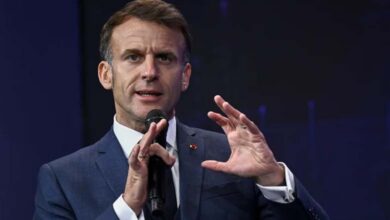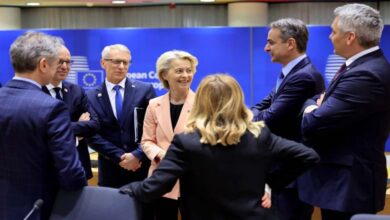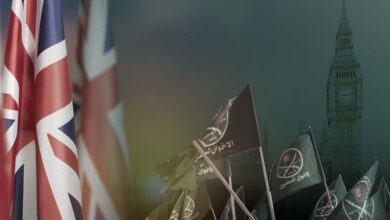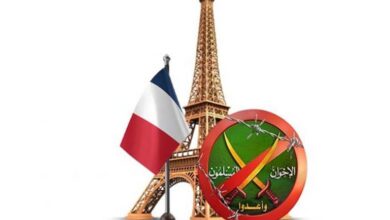The Muslim Brotherhood in French Sports: Quiet Infiltration and Hidden Influence
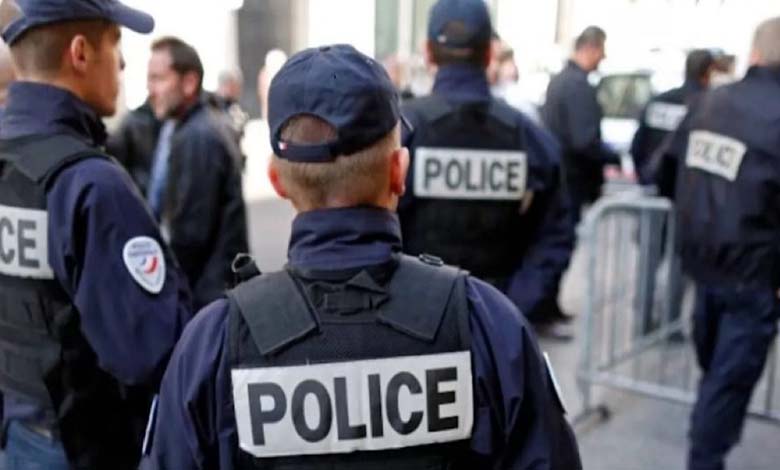
Under the banners of “integration” and “openness,” the Muslim Brotherhood has carefully spun its web, establishing a complex network of influence and positioning French sports — especially football — as a strategic platform for extending its reach.
In a country where football transcends mere entertainment to become a deep-rooted social and cultural phenomenon, it’s no surprise that the Brotherhood identified this mass-interest sector as fertile ground for dominance, following decades of penetration through educational, religious, and cultural associations.
-
French Authorities Continue Their Fight Against the Muslim Brotherhood: What’s New?
-
Trends exposes the Muslim Brotherhood at the French Senate
The Brotherhood and Sports in France
In recent years, signs have emerged indicating that certain activists linked to the Brotherhood are attempting to impose religious symbols within sports environments — raising concerns about the French public’s awareness of this subtle infiltration and its long-term risks.
Through its various fronts — notably the Union of Islamic Organisations of France (UOIF) — the Brotherhood has, over the past four decades, built a wide and adaptable network within French society, including educational, religious, cultural, and now sports associations, despite a lack of internal leadership renewal.
Although the “Separatism Law” enacted on August 24, 2021, aims to protect republican principles, experts say the legal framework is still inadequate in countering the Brotherhood’s gradual and soft tactics, often masked behind moderate rhetoric and inclusive slogans.
-
“The Taqiyya” is a book that reveals the Muslim Brotherhood’s game in French politics.
-
French campaigns to ban the Muslim Brotherhood in the European Union… Details
A French Intelligence Report
A 76-page intelligence report from the French Ministry of the Interior reveals detailed insights into the Brotherhood’s influence within specific sports — notably football, basketball, and martial arts — which are being used as platforms to spread its ideology and recruit youth.
The report also highlights “clear reluctance” among some sports federations toward inspections and monitoring by authorities, hindering state efforts to detect ideological infiltration, according to Le Figaro.
In April, Prime Minister François Bayrou stated on X: “The aim of the bill is not to ban the hijab in sports entirely, but only in official competitions,” indicating efforts to balance religious freedom with secular principles.
-
Director of the French Center for Studies: The terrorist Muslim Brotherhood faces confusion and fear of European pursuit
-
Muslims of France: A Brotherhood Front Undermining the Fifth Republic
While the Senate passed a bill in March to enforce secularism in sports, the National Assembly has not yet scheduled a discussion. Nonetheless, the report suggests “separatist activities” continue to thrive in sports clubs, particularly in football, basketball, and combat sports.
Spreading Ideological Influence
Sport — especially football — offers the Brotherhood an ideal channel to reach large segments of youth, leveraging the sport’s popularity and exploiting institutional laxity within certain clubs and associations.
French authorities face several challenges in addressing this phenomenon: a delayed awareness of the threat (as political Islam is often seen as a lesser risk compared to terrorism), the movement’s secretive nature (obsessed with discretion and internal discipline), and its localized structure, which complicates a coordinated national response. Additionally, some administrations hesitate to act for fear of being labeled “Islamophobic.”
-
The Muslim Brotherhood Threat in France: A Digital and Geographical Mapping
-
Hidden Details Behind the Scenes: How the Muslim Brotherhood Creates Followers in Europe
European Lessons
The report points out that other European countries offer useful legal models. Austria uses criminal law to define anti-state associations, allowing broader surveillance and intervention. Belgium legally defines extremism to include anti-democratic ideologies. The UK introduced an advanced definition of extremism, although it hasn’t yet been codified. In Germany and Austria, clear legal definitions have enabled intelligence agencies to act effectively.
A Strategy for Response
Although France defines separatism as an attempt to undermine national identity and democracy, this does not yet fully capture the Brotherhood’s gradualist strategy. Rather than direct confrontation, the Brotherhood erodes civic identity through soft tools such as cultural and sports associations.
-
The Muslim Brotherhood’s Threat to Education in France: The Frontlines Begin at Averroès
-
How the Muslim Brotherhood Infiltrated the Heart of Europe
Hence, it’s crucial to:
- Establish a precise legal definition of political Islam;
- Train local actors in municipalities and sports institutions to detect and dismantle ideological narratives;
- Raise public awareness — especially among youth — about the dangers hidden behind slogans of “integration” or “diversity.”
A Battle of Awareness
Experts stress that sport should no longer be viewed merely as leisure but as a space for defending republican values. Vigilance is vital to prevent sports from becoming Trojan horses for ideological agendas. France is not only fighting a legal battle — it is, above all, fighting a battle of awareness.
-
New Security Warning in France: The Muslim Brotherhood, “the Greatest Internal Threat”
-
Reaching by Any Means: How the Muslim Brotherhood Penetrated France
-
France: Number of Muslim Brotherhood members has doubled since 2019, from 50,000 to 100,000


